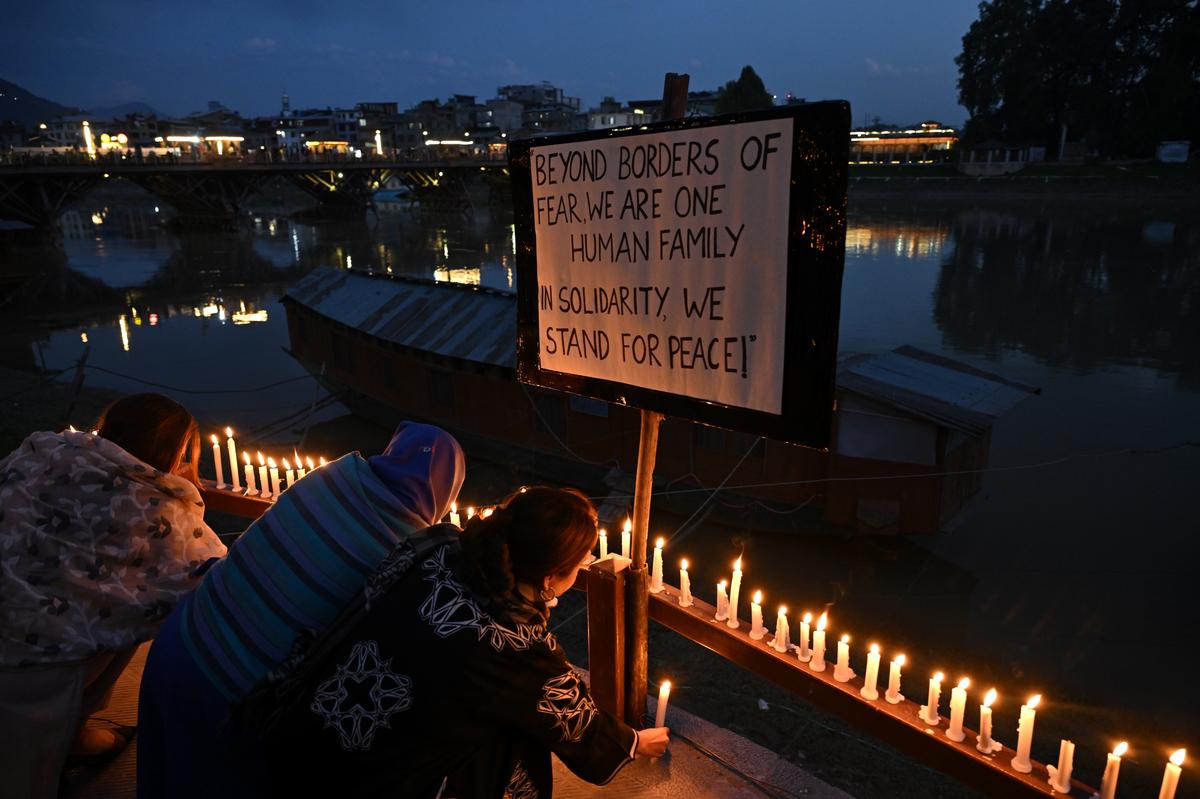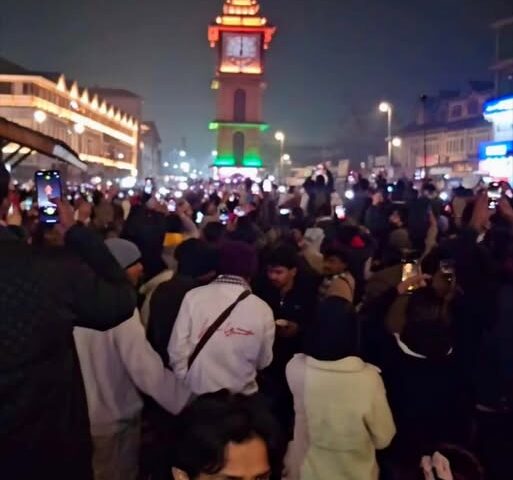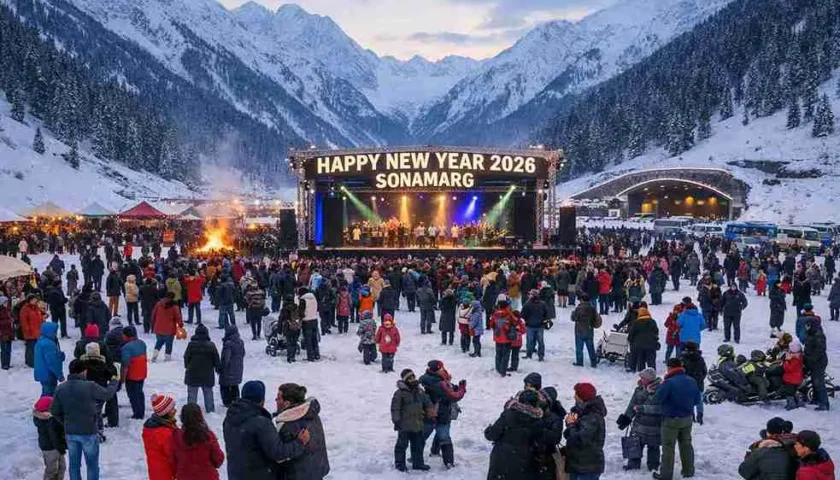Kashmir’s Tourism Crisis After Pahalgam Attack: A Call for National Solidarity from Parliament
By: Javid Amin | Srinagar | 03 July 2025
When Silence Becomes a Second Attack
The air in Kashmir is quieter now—not because of peace, but because the usual hum of tourists has disappeared. The houseboats that once rocked gently under the laughter of honeymooners lie deserted. Hotels that thrived on group bookings now face cancellation after cancellation. Taxi drivers, pony owners, and local artisans stare at empty streets, waiting for a visitor who never arrives.
This mass vacuum of tourist presence is not due to seasonal changes or poor weather—it is the aftermath of the April 22 terror attack in Pahalgam, which claimed lives and destroyed confidence. Since then, Kashmir has lost over 95% of its tourist footfall, turning what was once a promising revival into a devastating collapse.
This is more than a blow to business—it is a humanitarian, social, and national crisis that Parliament can no longer afford to ignore. The people of Kashmir need more than token gestures—they need visible solidarity and policy-level support that can rescue livelihoods before it’s too late.
The Tragic Trigger: Pahalgam Attack and Its Fallout
On April 22, 2025, a terrorist ambush in Pahalgam targeted a tourist convoy, resulting in multiple civilian casualties, including out-of-state visitors. The act was not only brutal in execution but also strategic in intention—cripple Kashmir’s tourism sector and sow fear nationwide.
The results were instant and staggering:
-
Tour packages were cancelled en masse
-
Online booking platforms removed Kashmir listings
-
Airfare to Srinagar dropped due to lack of demand
-
Group tours by travel agencies were suspended indefinitely
-
States issued travel advisories to families and groups
The message of the attack went beyond violence—it instilled a chilling doubt: “Is Kashmir safe?”
The Numbers That Should Alarm Us All
Let’s move beyond vague headlines and look at the numbers that reveal the true scale of devastation.
Tourism Sector Impact (April–June 2025):
| Indicator | Before Attack | After Attack |
|---|---|---|
| Daily tourist footfall | 15,000+ | Below 700 |
| Houseboat occupancy | 80% | Under 5% |
| Airport arrivals (SXR) | 6,500/day | 2,200/day |
| Transport bookings | Fully booked | 28,000 vehicles idle |
| Hotel cancellation rate | 5–10% | Over 90% |
| Yatra-related turnout (early season) | 60,000 | Just 12,000 |
The Human Cost: Lives Behind the Numbers
🚕 Altaf Ahmad, Taxi Driver – Srinagar
“I have a new tourist van, bought on EMI. No bookings since April. I’ve already missed two loan payments.”
🐴 Mehmooda Bano, Pony Owner – Pahalgam
“My family has ferried tourists for three generations. My children now think we have no future.”
🛏️ Showkat Ali, Hotel Manager – Gulmarg
“We had 70 rooms booked till June. After the attack, not one tourist showed up. Staff are being sent home.”
The stories are endless—and heartbreaking. This isn’t just about tourism—it’s about the erasure of an entire economic identity built around hospitality, resilience, and culture.
The Cost of Inaction: A Dignity Lost
What happens when a region built on tourism stops receiving tourists overnight?
-
Families slip below the poverty line
-
Businesses default on bank loans
-
Students are forced to drop out due to financial strain
-
Youth employment plummets, increasing risk of radicalization
-
Public trust in the system erodes
Kashmir’s people are not asking for charity. They are asking for a chance to survive with dignity—and this chance is rapidly slipping away.
Why Parliament Must Rise Now: Not Later
1. A Message of Unity and Confidence
Holding a Parliamentary Committee meeting in Kashmir—as proposed by Renuka Chowdhury—would send a national message: “We do not abandon our own.” More importantly, it would rebuild domestic and international tourist trust.
2. On-Ground Policy Hearings
Let Members of Parliament speak directly with:
-
Hoteliers
-
Artisans
-
Transport unions
-
Houseboat owners
-
Youth business leaders
This would ensure grounded policymaking—not assumptions from afar.
3. Emergency Livelihood Package
Parliament can push for a special bailout fund for:
-
Loan moratoriums for tourism-linked businesses
-
Subsidies for houseboat and hotel upkeep
-
Cash transfers to daily wage tourism workers
-
Promotion incentives for Kashmir-specific tour operators
4. Tourism Diplomacy
Send a bipartisan delegation to Kashmir to be publicly photographed enjoying the Valley—a strategic soft power move that resonates online and across state borders.
What the Centre Has Done So Far—And Why It Isn’t Enough
Yes, there have been:
-
Assurances from Tourism Ministry
-
Some symbolic visits from BJP leaders
-
A few promotional videos
But the impact on the ground remains negligible. Symbolism without systemic support is performative—and Kashmiris are tired of performances.
What Tourism Revival Requires Immediately
Tactical Actions:
-
Re-launch of “Back to Kashmir” campaign
-
Targeted chartered flights from Delhi, Mumbai, Ahmedabad
-
Group insurance guarantees for tourists
-
Restoration of Yatra security corridor confidence
-
Discounted hotel + flight bundles on IRCTC, MakeMyTrip, etc.
Structural Solutions:
-
A Kashmir-specific Tourism Relief Code for attacks or emergencies
-
Emergency marketing fund under Union Tourism Ministry
-
AI-powered confidence tracking system using tourist sentiment data
-
Collaboration with international travel influencers to rebuild brand Kashmir
Lessons from the Past: We’ve Seen This Before
-
Post-2016 unrest, tourism dipped for 8 months, leading to ₹1,500 Cr loss.
-
COVID lockdowns in 2020-21 caused a near shutdown.
-
Pulwama aftermath (2019) saw a 40% dip despite security reassurances.
Each time, revival required visible political reassurance, not just brochures.
Long-Term Roadmap: Turning Tragedy into Transformation
The pain of today can become the foundation for reform tomorrow. But this needs Parliament to:
-
Recognize Kashmir tourism as a national heritage sector
-
Enact emergency response systems like UDAN schemes for airfares
-
Create youth-based rural tourism hubs beyond Pahalgam and Gulmarg
-
Subsidize solar electrification of houseboats for sustainable luxury branding
Kashmir Is Not Just a Destination. It’s a National Symbol.
When Kashmir falls off the tourism map, it’s not just about one state. It’s about what India chooses to protect, promote, and preserve.
Tourism in Kashmir isn’t just about shikaras and snow. It’s about:
-
India’s secular hospitality
-
Cultural diplomacy
-
Rural employment generation
-
And above all—national confidence
Conclusion: Kashmir’s Silence Should Echo in Parliament
Kashmir’s streets are silent. But that silence must echo through the halls of Parliament, shaking awake every policymaker who still sees this as someone else’s problem.
Because when livelihoods disappear, hope disappears. And when hope disappears, no security operation can rebuild it.
Parliament rising in solidarity today is not just political—it’s moral. And it may be the only thing that revives a wounded Valley before it’s too late.
Summary: What Needs to Be Done
| Action | Stakeholder | Urgency |
|---|---|---|
| Hold Parliamentary Committee meeting in Kashmir | Lok Sabha / Rajya Sabha | Immediate |
| Launch emergency tourism revival package | Union Ministries | High |
| Offer tax relief & loan moratorium | RBI / Finance Ministry | Medium |
| Begin nationwide “Visit Kashmir” campaign | Tourism Boards | Ongoing |
| Implement long-term insurance for tourism sector | IRDA / Tourism Ministry | Structural |




